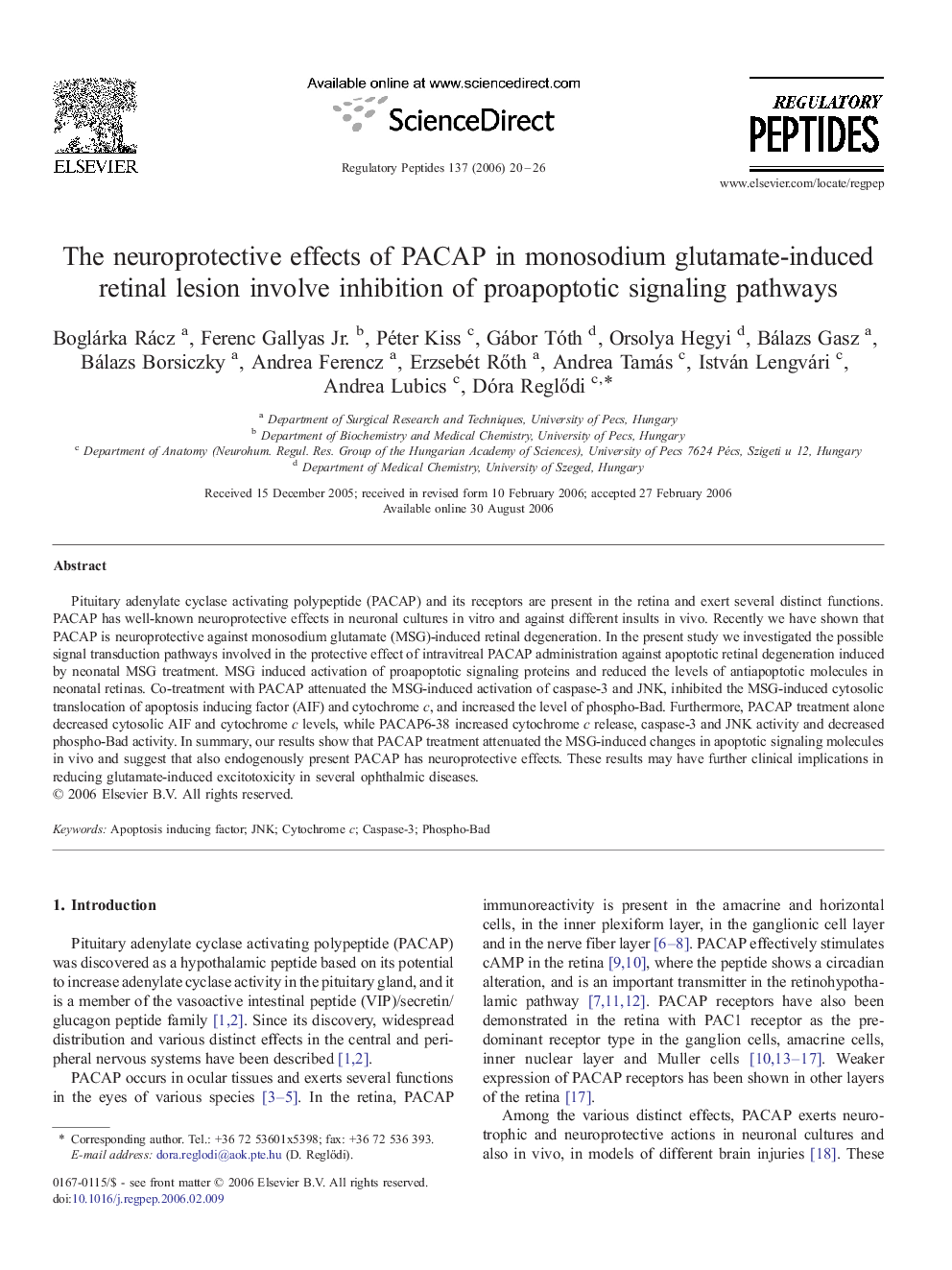| Article ID | Journal | Published Year | Pages | File Type |
|---|---|---|---|---|
| 2023548 | Regulatory Peptides | 2006 | 7 Pages |
Pituitary adenylate cyclase activating polypeptide (PACAP) and its receptors are present in the retina and exert several distinct functions. PACAP has well-known neuroprotective effects in neuronal cultures in vitro and against different insults in vivo. Recently we have shown that PACAP is neuroprotective against monosodium glutamate (MSG)-induced retinal degeneration. In the present study we investigated the possible signal transduction pathways involved in the protective effect of intravitreal PACAP administration against apoptotic retinal degeneration induced by neonatal MSG treatment. MSG induced activation of proapoptotic signaling proteins and reduced the levels of antiapoptotic molecules in neonatal retinas. Co-treatment with PACAP attenuated the MSG-induced activation of caspase-3 and JNK, inhibited the MSG-induced cytosolic translocation of apoptosis inducing factor (AIF) and cytochrome c, and increased the level of phospho-Bad. Furthermore, PACAP treatment alone decreased cytosolic AIF and cytochrome c levels, while PACAP6-38 increased cytochrome c release, caspase-3 and JNK activity and decreased phospho-Bad activity. In summary, our results show that PACAP treatment attenuated the MSG-induced changes in apoptotic signaling molecules in vivo and suggest that also endogenously present PACAP has neuroprotective effects. These results may have further clinical implications in reducing glutamate-induced excitotoxicity in several ophthalmic diseases.
